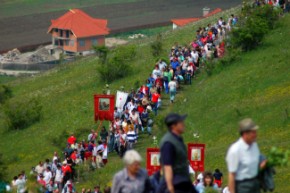Europe’s Pentecost

On June 23, Britons will vote on whether to remain a part of the European Union.
The advocates of staying stress the pragmatic view, which seeks the flourishing of peoples in democratic conditions of sustainable affluence, so that justice reigns and diversity is upheld, while economic peril, cultural tension, and violent conflict are avoided. This view concentrates on getting the relationship between France and Germany right, since that interface has proved explosive in recent times. It sees economic union as a route to the flexibility and competitiveness of Europe in a global market. And it sees religion as an administrative problem. It recalls the Thirty Years’ War of the 17th century and regards that bloodbath, with its 8 million deaths, as the definitive statement that religious division causes terrible violence. With the rise of Islamist terrorism in the last 15 years this fear of religion is renewed, and the church is often seen as an antiliberal aspect of society that can be tolerated but must be closely monitored.
This is the dominant view among European technocrats. It’s not clear whether it can address climate change, migration, or austerity. This is the Europe that Pope Francis described as weary and aging, elderly and haggard, losing its fertility and vibrancy. It lacks a vision of transcendent good in which the claims of Christianity, of repentance and mercy, of abundant and eternal life can find a hearing.





